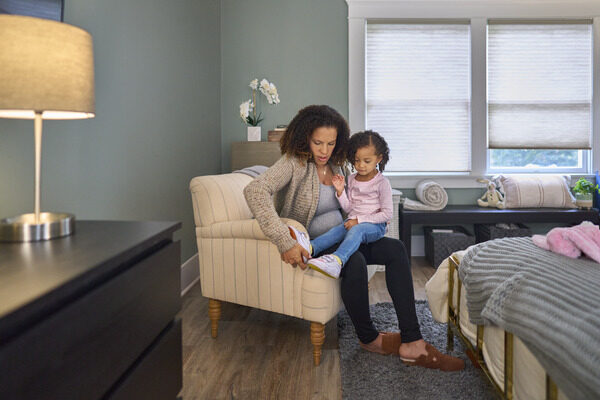
Starting a family is a decision that requires some careful considerations, including thinking about any career issues that might arise and assessing your emotional readiness. During the planning process, getting your finances in order is a good first step.
Having children can be costly. According to a U.S. Department of Agriculture report, parents spend nearly $14,000 a year on child-rearing expenses. A survey by Babycenter.com showed three in five women were worried about being able to afford raising a child into adulthood. Below you’ll find four finance-related parenting issues to consider.
Child care
Child-care costs can be high, although with some research you should be able to find an option that fits your budget. The potential choices include employer day care or discounts toward child care, or a nanny-share with other families. Many day care centers have long waiting lists, so you’ll want to inquire early in your pregnancy. If you plan to hire a sitter or nanny, give yourself enough time to interview and check references before making a decision. Also, don’t be shy about embracing help from family members.
Many couples decide they’re ready to have a baby when one or both have reached a plateau in their careers or are ready for a break. If finances allow, one parent may decide to take on full- or part-time child-care duties or switch off with the other parent by altering work schedules, which will offset child-care costs. You should also check on parental leave policies from your employer, which may allow you to take a set number of weeks off at a percentage of your pay.
Health care and safety
When your baby arrives, he or she will need health care coverage from the start. Review your health care policy and benefits to see if your current plan sufficiently covers parents’ and children’s needs and is cost-efficient.
You’ll be asked to select your baby’s doctor while you’re still in the hospital. Do your homework ahead of time by asking other parents for names of local doctors and what they like — or don’t — about them. Visit a few practices, find out which ones accept your insurance, and request a brief meeting with the physicians.
Speaking of your child’s well-being, you may want to learn infant CPR. Becoming certified in infant CPR takes about 5 hours, which is an easy commitment before the baby arrives — but you’ll be hard-pressed to find that time once you’re tending to a newborn. Classes usually cost about $50 per person and are offered at hospitals or at local chapters of the American Red Cross or the American Heart Association.
If you rely solely on public transportation or get around in a two-seated sports car, you may need a reliable vehicle that safely accommodates a child seat for all those trips to the pediatrician and day-care center. Likewise, your living quarters may be perfectly adequate for two adults but may require renovating to make a safe space for a nursery and all the belongings a baby needs. Or you may need to move.
When setting up the nursery, there are a few safety tips to keep in mind
- Be sure to use a safe, sturdy crib with slats no more than 2 3/8 inches apart.
- Buy toy boxes without lids, or use models with spring-loaded mechanical arms that won’t come crashing down on your little one’s arm.
- Keep changing-table necessities out of reach of children. Even baby products can be poisonous if ingested.
- Choose lightweight artwork that can’t hurt your baby if it falls off the wall. Stencils and murals are the safest option.
- Use water-based paint. Complete decorating in plenty of time to air out the room for baby — and steer clear of fumes yourself.
Daily expenses
Consider your household budget and determine how much in additional expenditures it can absorb. The daily costs of caring for a baby can add up quickly, including diapers, formula, baby food, clothes and all the other accessories. That’s not to mention larger, less-frequent purchases such as a crib, car seat, stroller and highchair.
Your shopping habits might need to change as well. Sticking to a budget means resisting impulse buys like a cute baby outfit or toy you don’t need. It can all be part of a larger lifestyle change for which you may not be ready. For instance, instead of frequenting that pricey market, you may need to switch to shopping at a warehouse club for bulk items or a thrift store for secondhand clothes.
Planning for the future
If you’re thinking of expanding your family, start saving immediately — even small amounts. A nest egg of savings will help lessen the factor that money plays in your decision and let you focus more on the personal and life-enriching aspects of being a parent. You’ll also be in a better position to achieve goals that are planned (like a larger home) and those that pop up along the way (like a family vacation).
At the same time, adding another dependent to your family means you need to review or create wills, guardianship rules, retirement plans and life insurance policies. It’s important to update these documents to keep your baby protected from the start and throughout his or her childhood.



